
Find Help
More Items From Ergsy search
-

Which spiders in the UK can bite humans?
Relevance: 100%
-
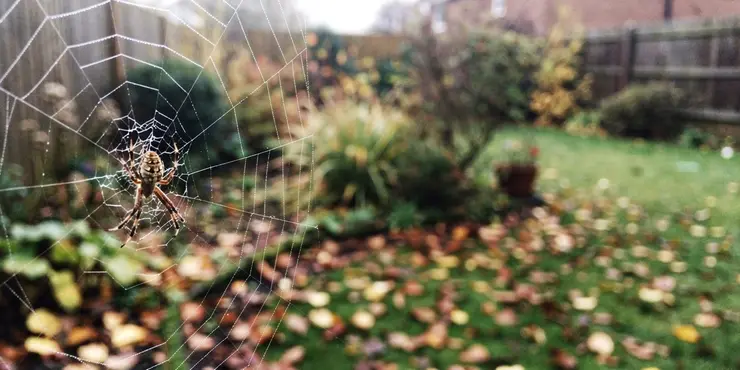
Are UK spiders venomous?
Relevance: 75%
-

Are there non-venomous spiders in the UK?
Relevance: 72%
-
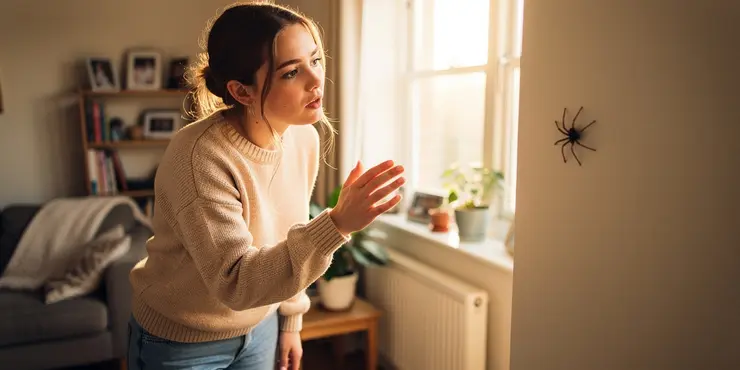
Are there any poisonous spiders in the UK?
Relevance: 72%
-

Do spiders in the UK carry diseases?
Relevance: 70%
-

Is the bite from a false widow spider dangerous?
Relevance: 70%
-
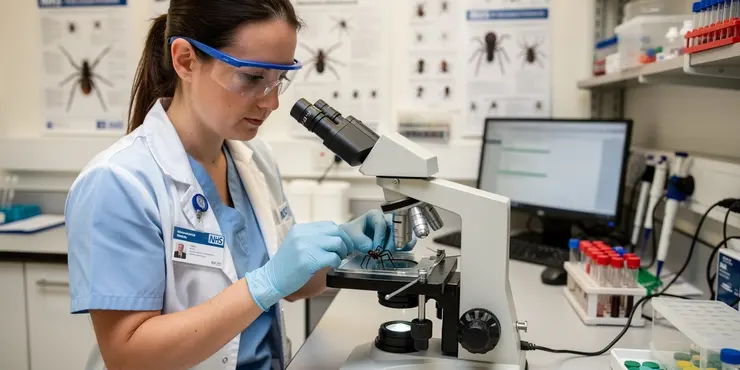
What is the most dangerous spider in the UK?
Relevance: 63%
-
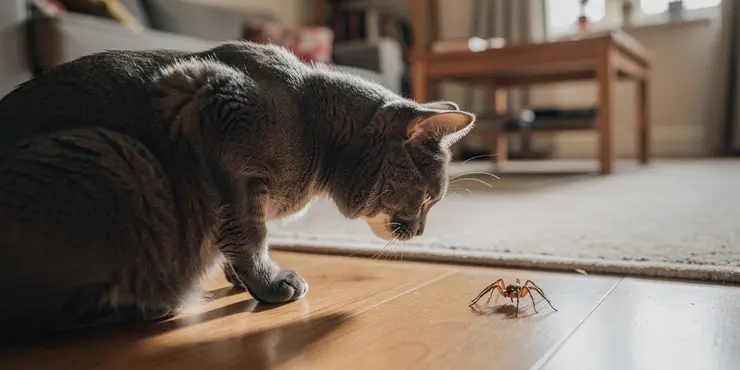
Do UK spiders pose a threat to pets?
Relevance: 62%
-

How common are spider bites in the UK?
Relevance: 61%
-
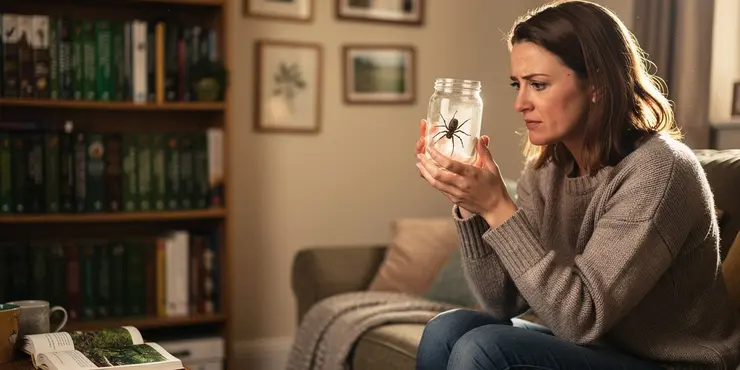
Can UK spiders cause allergic reactions?
Relevance: 60%
-
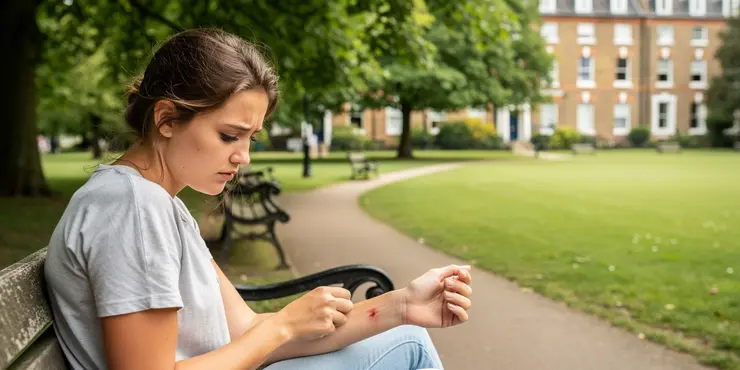
What should I do if I get bitten by a spider in the UK?
Relevance: 59%
-
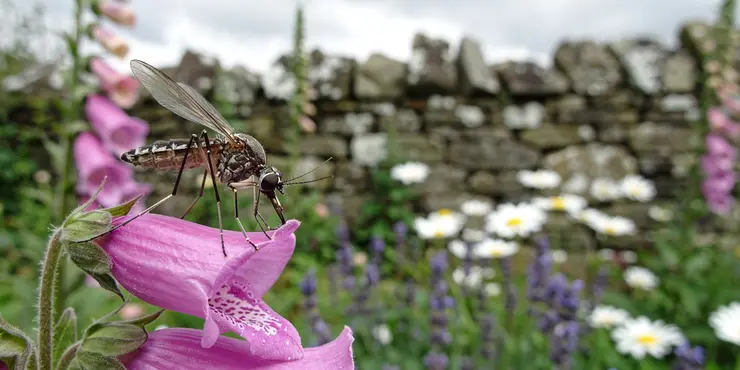
Do all mosquitoes bite humans?
Relevance: 57%
-
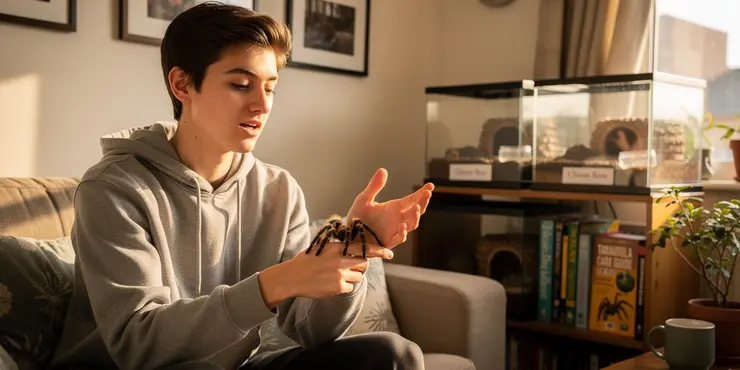
Can I keep a spider in the UK as a pet?
Relevance: 54%
-
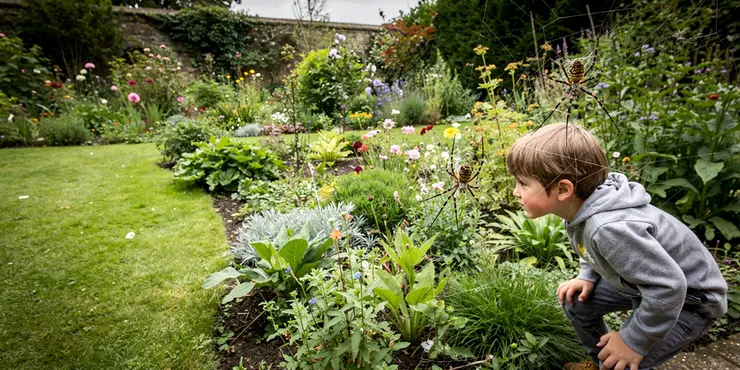
How big can spiders in the UK get?
Relevance: 53%
-

Are mosquito bites in the UK harmful?
Relevance: 48%
-
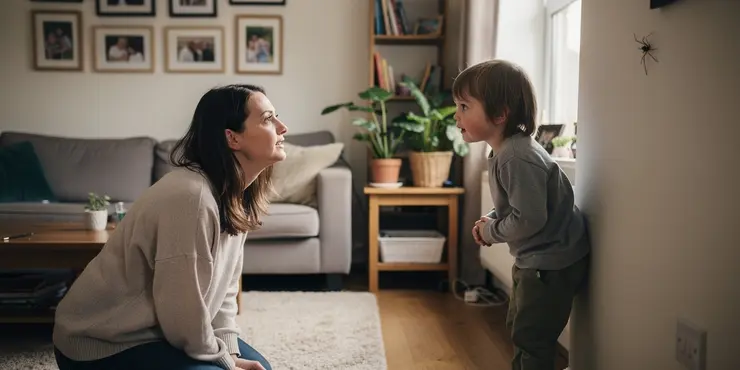
What should I do if I find a spider in my home?
Relevance: 47%
-

How can I identify a false widow spider?
Relevance: 47%
-
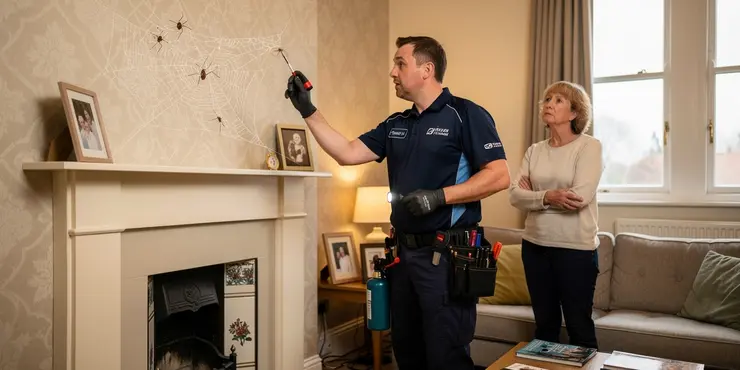
Is professional pest control needed for spiders?
Relevance: 46%
-

Think Pharmacy: Introduction for Bites and Stings
Relevance: 43%
-
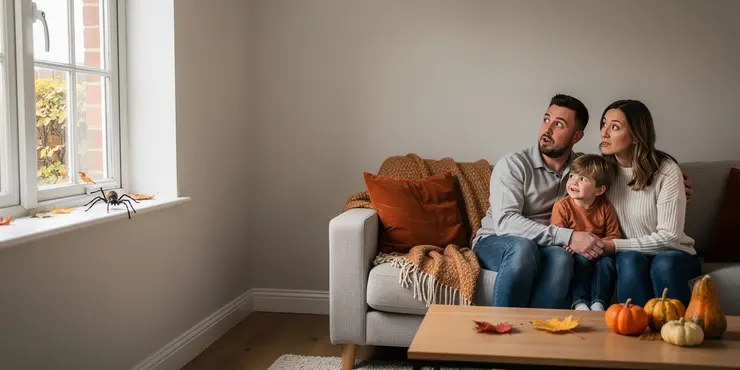
Why might there be more spiders in the home during autumn?
Relevance: 43%
-
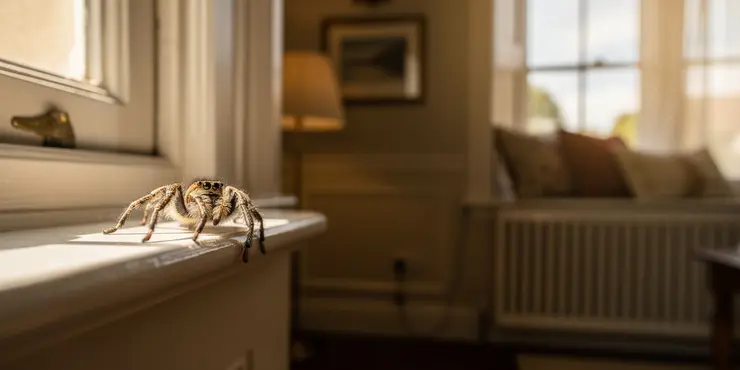
What are the benefits of having spiders in the home?
Relevance: 41%
-
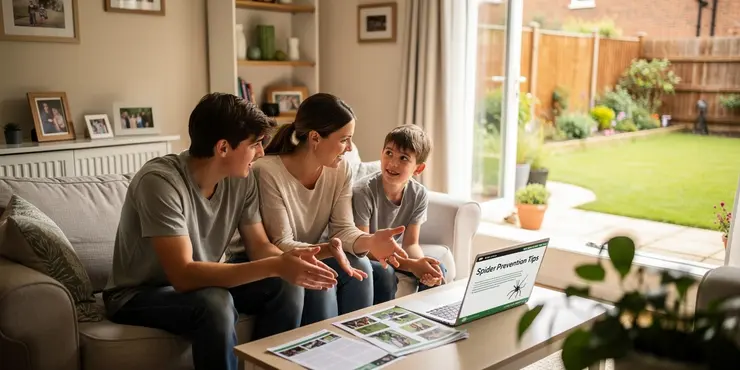
Are there any precautions to take against spiders in the UK?
Relevance: 39%
-
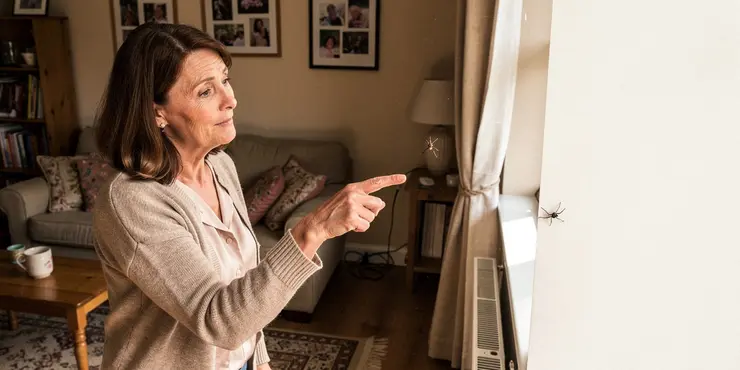
What types of spiders are commonly found in UK homes?
Relevance: 37%
-

Is Lyme disease contagious between humans?
Relevance: 35%
-
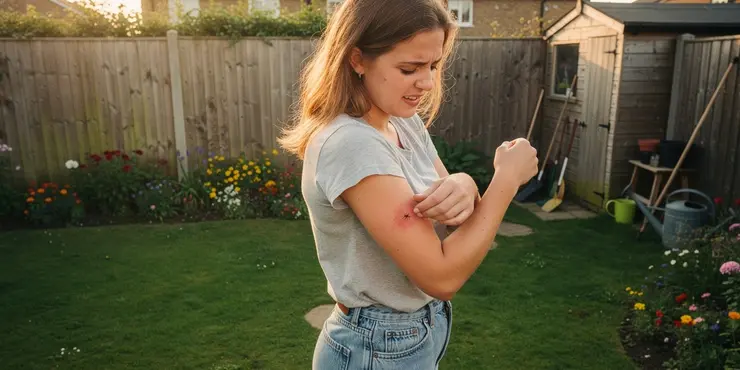
Why are mosquito bites itchy?
Relevance: 35%
-
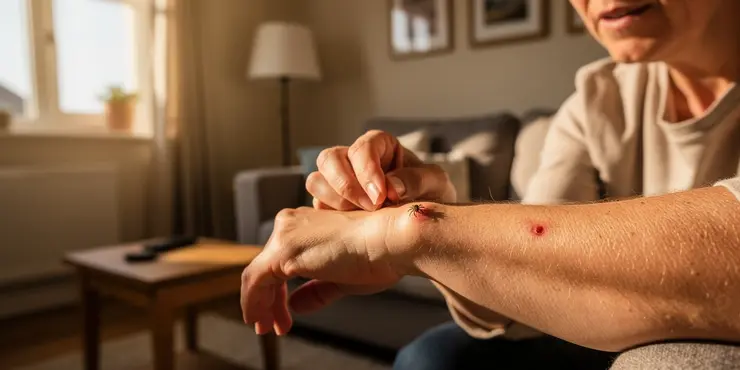
Tick Bites: Should you be worried?
Relevance: 35%
-

How can I protect myself from mosquito bites in the UK?
Relevance: 35%
-

Can HIV be transmitted through insect bites?
Relevance: 34%
-
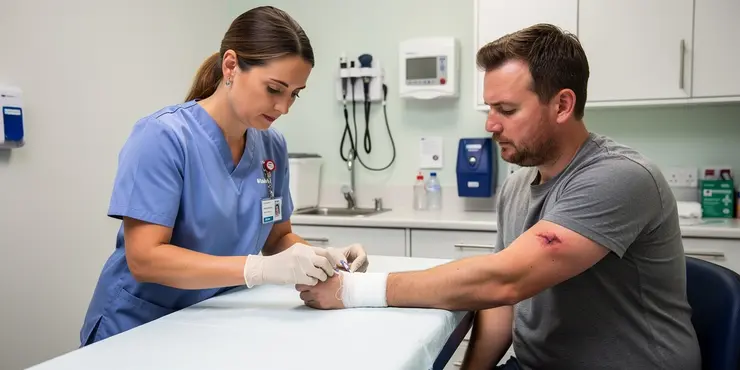
How to treat a dog bite
Relevance: 34%
-
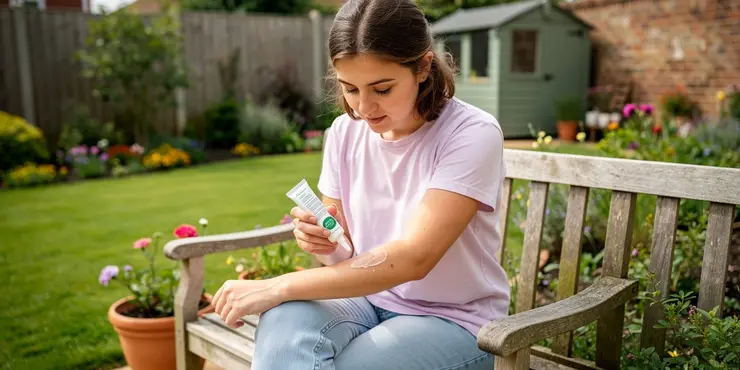
Self care - insect bites
Relevance: 34%
-
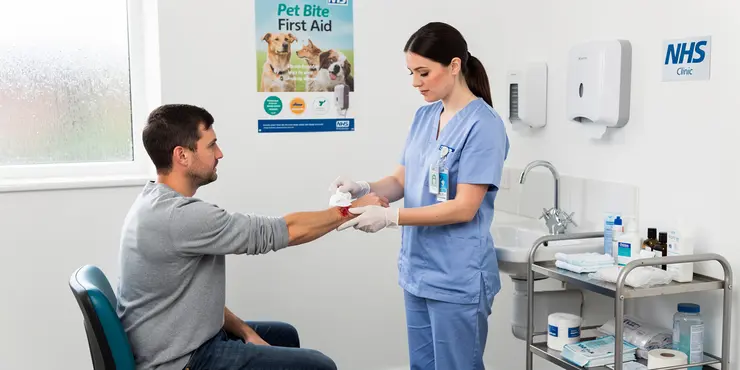
How to treat a cat bite
Relevance: 33%
-

Is the bubonic plague contagious between humans?
Relevance: 33%
-
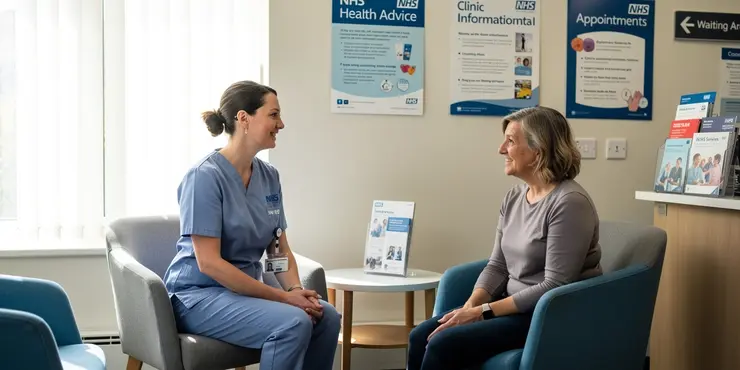
The Human Rights Act
Relevance: 33%
-
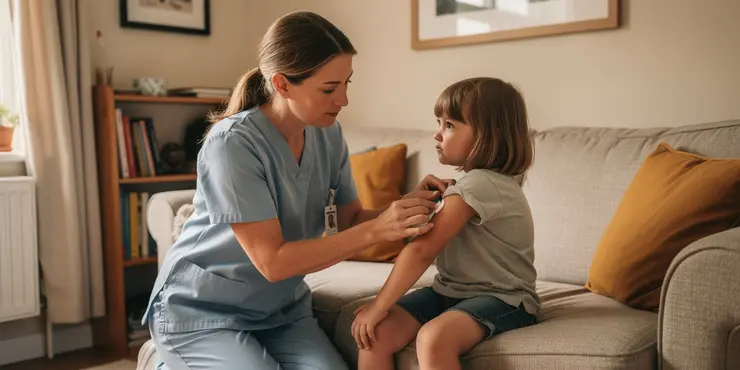
How can I treat mosquito bites?
Relevance: 31%
-
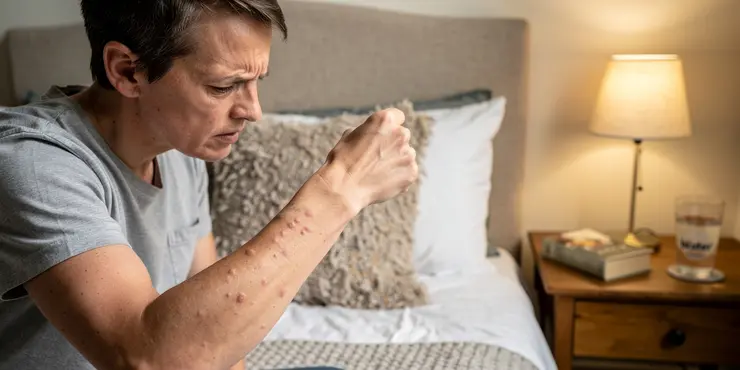
How can I tell if bites are from bed bugs?
Relevance: 30%
-
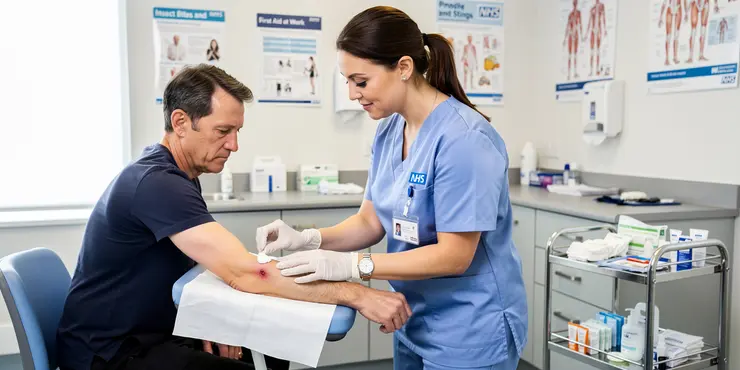
How to treat an insect bite or sting | NHS
Relevance: 29%
-
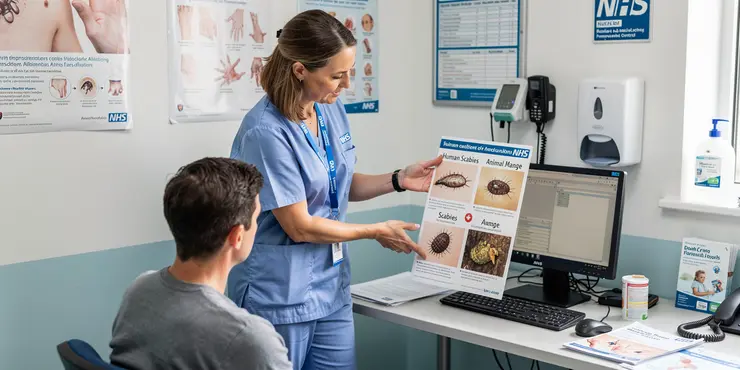
Can animals spread scabies to humans?
Relevance: 29%
-

Can mosquitoes in the UK enter houses?
Relevance: 28%
-
Are screw worms dangerous to humans?
Relevance: 27%
-
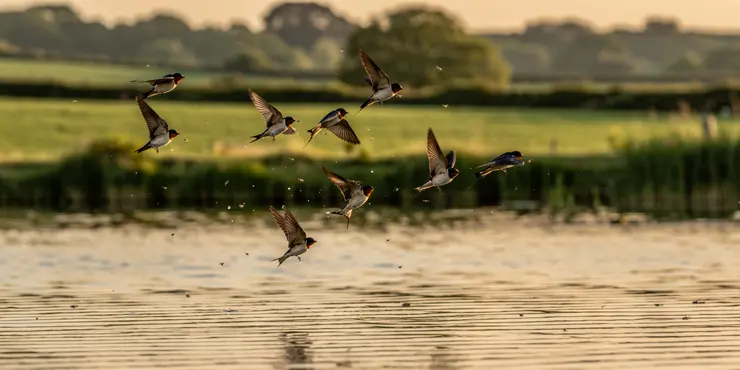
Are there any native mosquito predators in the UK?
Relevance: 27%
Introduction
Spiders are a common sight in homes and gardens across the UK. While most species are harmless, a few are capable of biting humans. Understanding which spiders in the UK can bite is important for peace of mind and safety. In this article, we will explore these species and how to identify them.
False Widow Spider
The false widow spider (Steatoda nobilis) is perhaps the most well-known biting spider in the UK. Often confused with the more dangerous black widow, false widows are significantly less harmful. They have a bulbous abdomen with distinctive cream markings. Bites are rare but can cause mild to moderate pain, redness, and swelling. In some cases, people may experience nausea or dizziness.
Woodlouse Spider
The woodlouse spider (Dysdera crocata) is another spider capable of biting humans. Identifiable by its reddish-brown body and large fangs, this spider primarily preys on woodlice. Although they are not aggressive towards humans, they can bite if provoked. Bites may cause localized pain and swelling, but they are not considered dangerous.
Tube Web Spider
Tube web spiders (Segestria florentina) are larger than many other British spiders, with a leg span of up to 2 inches. They have a dark, shiny appearance and are often found around buildings in urban areas. Their bites can be painful, akin to a wasp sting, but they are not life-threatening. Symptoms include localized pain, redness, and numbness.
Wasp Spider
The wasp spider (Argiope bruennichi) is named for its striking yellow and black stripes, resembling a wasp. They are mostly found in southern England. While they can bite humans, they are not aggressive and bites are extremely rare. A wasp spider bite is similar to a bee sting, causing minor pain and swelling.
House Spider
Commonly found indoors, the house spider (Tegenaria spp.) can bite, although they are generally not aggressive. They are large, brown spiders with long legs and are often seen in autumn. House spider bites may result in minor pain and itching, but they are not harmful to humans.
Conclusion
While encounters with biting spiders in the UK are possible, they are generally uncommon and rarely serious. Understanding which spiders can bite and identifying them can help alleviate fear. It's important to remember that bites are uncommon and can usually be managed with basic first aid. If a more severe reaction occurs, seeking medical advice is recommended.
Introduction
Spiders live in many homes and gardens in the UK. Most spiders do not harm people, but a few can bite. Knowing which spiders can bite helps us feel safe. This article will explain which spiders can bite and how to recognize them.
False Widow Spider
The false widow spider is a well-known spider in the UK that can bite. People sometimes think it is the more dangerous black widow, but false widows are less harmful. They have a big round body with cream-colored marks. It is rare for them to bite, but if they do, it may cause mild pain, redness, and swelling. Some people might feel sick or dizzy.
Woodlouse Spider
The woodlouse spider can also bite people. It has a reddish-brown body and big fangs. This spider eats woodlice. It will not attack people but might bite if it feels threatened. The bite can hurt and swell a little, but it is not dangerous.
Tube Web Spider
Tube web spiders are bigger than many UK spiders. They can have legs up to 2 inches long. They look dark and shiny and often live near buildings in cities. Their bite can hurt like a wasp sting but is not deadly. Bites cause pain, redness, and numbness in the area.
Wasp Spider
The wasp spider is named because it looks like a wasp with yellow and black stripes. They live mostly in southern England. They rarely bite humans and are not mean. A bite feels like a bee sting, causing small pain and swelling.
House Spider
House spiders are often found indoors. They can bite, but are usually not mean. They are big, brown spiders with long legs and are often seen in autumn. A house spider's bite might hurt a bit and itch, but it is not harmful.
Conclusion
Biting spiders in the UK are rare and usually not a big problem. Knowing which spiders might bite and how to spot them can help you feel less worried. Remember, bites do not happen often and can be treated with simple first aid. If you feel very unwell after a bite, it is best to talk to a doctor.
Frequently Asked Questions
Which spiders in the UK are known to bite humans?
In the UK, the noble false widow spider (Steatoda nobilis) is the most well-known for biting humans. Other species include the woodlouse spider and the tube web spider.
Are spider bites common in the UK?
Spider bites are uncommon in the UK. Most native spiders are harmless to humans.
How can I identify a noble false widow spider?
The noble false widow spider is typically dark brown with a distinctive cream marking on its abdomen, resembling a skull. It is often mistaken for the more dangerous black widow spider.
What symptoms might occur from a spider bite in the UK?
Spider bite symptoms in the UK can include mild pain, redness, and swelling. In rare cases, more severe reactions may occur.
Should I be concerned about spider bites at home?
While bites are possible, most spiders in the UK are not aggressive and bites are rare. Regular home cleaning can help prevent spider infestations.
What should I do if bitten by a spider in the UK?
If bitten, clean the area with soap and water. Apply a cold compress and, if swelling or pain persists, seek medical advice.
Can noble false widow spiders cause serious harm?
Bites from noble false widow spiders can be painful and occasionally cause serious symptoms like severe swelling or allergic reactions, but they are rarely life-threatening.
Where are noble false widow spiders typically found in the UK?
They are often found in homes and buildings, particularly in southern England, although their range is spreading.
Are there any protected species of spiders in the UK?
Yes, some species such as certain rare jumping spiders are protected due to their conservation status.
How can I prevent spider bites in my home?
Keeping your home clean, sealing cracks, and removing clutter helps prevent spiders. Regularly checking areas like basements and attics can also help.
Are children more at risk from spider bites?
Children can be more sensitive to bites, so monitoring symptoms closely is advisable. However, severe reactions remain rare.
Do house spiders in the UK bite humans?
House spiders tend to avoid human contact and rarely bite. Bite incidents are extremely uncommon.
What attracts spiders to homes in the UK?
Spiders enter homes seeking food and shelter. Lights attract insects, which then attract spiders.
How can I identify a woodlouse spider?
The woodlouse spider has a reddish-brown body with a cream abdomen. They are known for their large fangs.
What is the largest spider species in the UK?
The cardinal spider (Tegenaria parietina) is one of the largest in the UK, with a leg span that can reach up to 12 cm.
Why are false widow spiders spreading in the UK?
Global trade and climate changes have contributed to the spread and establishment of noble false widow spiders.
Can pets be affected by spider bites in the UK?
Pets might experience discomfort if bitten, similar to humans. Consult a vet if you suspect a spider bite.
Can UK spiders cause allergic reactions?
Yes, some people may experience mild to severe allergic reactions to spider bites, though this is rare.
What are the benefits of spiders in the home?
Spiders help control pest populations by eating insects like flies, moths, and mosquitoes.
Is it necessary to exterminate spiders found at home?
Not usually. Most spiders are harmless and beneficial. Capturing and releasing them outside is a safe alternative.
What UK spiders can bite people?
In the UK, some spiders can bite people. Most bites are not dangerous. If you want more help, you can:
- Look at pictures to see what the spiders look like.
- Ask an adult for help if you see a spider.
- Use a magnifying glass to look at small details.
- Talk to someone who knows about spiders, like a teacher or a parent.
In the UK, the noble false widow spider is a spider that can bite people. This spider has the name Steatoda nobilis. There are other spiders too, like the woodlouse spider and the tube web spider.
If you find reading hard, try using audiobooks or ask someone to read with you. Looking at pictures of the spiders can also help you understand better.
Do people in the UK often get bitten by spiders?
Spider bites don’t happen often in the UK. Most spiders in the UK are safe for people.
How can I spot a noble false widow spider?
A noble false widow spider is a type of spider. Here is how you can spot one:
- It has a dark brown body.
- Its legs are a lighter brown.
- There is often a cream or light pattern on its back that looks like a skull or an hourglass.
- The spider’s body is about the size of a 1p coin.
If you need help, you can use:
- Pictures of the spider to compare with what you see.
- Ask an adult to help you.
- Look at websites with guides on spiders.
The noble false widow spider is usually dark brown. It has a special cream-colored mark on its tummy that looks like a skull. People often think it is the more dangerous black widow spider.
What happens if a spider bites you in the UK?
Here are some things you might feel if a spider bites you:
- Sore or hurting skin where the spider bit you
- Red or swollen skin
- Feeling itchy
- A small bump on your skin
If you think you've been bitten, you could:
- Put a clean cloth with cold water on the bite
- Ask an adult to help you if it doesn't get better
- Stay calm and don't scratch the bite
When a spider bites you in the UK, you might feel a little bit of pain. Your skin could turn red, and it might swell up. Sometimes, people can feel very sick from a bite, but this is not common.
If you feel worried or your symptoms get worse, it is a good idea to tell an adult or go see a doctor. Reading it out loud or asking someone to explain it more can also help you understand better.
Are spider bites at home something to worry about?
Spider bites can happen, but most spiders in the UK are not mean, and bites don't happen often. Cleaning your home regularly can help keep spiders away.
What to Do if a Spider Bites You in the UK
If something bites you, wash the area with soap and water. Use a cold cloth to help. If it still hurts or swells up, talk to a doctor.
Can noble false widow spiders hurt people badly?
Bites from noble false widow spiders can hurt. Sometimes, they can cause big swelling or make you feel very sick, like with an allergy. But don't worry, bites are not usually very dangerous.
Where do noble false widow spiders usually live in the UK?
Noble false widow spiders like warm places. You can find them in houses, gardens, and sheds. They often hide in dark corners. Look for them in attics or basements too.
Helpful tip: Use a flashlight to see better in dark places.
You can often find them in homes and buildings. They are mostly in southern England, but they are moving to other places too.
Are some spiders special and protected in the UK?
Some spiders in the UK are special and need help. These spiders are protected by law. This means we must be kind and careful with them.
If you want to learn more about these special spiders, you can use picture books or visit nature websites. These tools can help you understand better.
Yes, some special spiders, like certain kinds of jumping spiders, are protected because they are rare and need help to survive.
How can I stop spider bites in my home?
To keep spiders away and stay safe from bites, you can: - **Clean often:** Vacuum your floors and dust shelves and corners. - **Seal cracks:** Close any little spaces where spiders can come in. - **Use screens:** Put screens on windows and doors to keep spiders out. - **Keep outdoor lights off:** Lights attract bugs, which attract spiders. - **Use natural sprays:** Try safe sprays that keep spiders away. - **Move things:** Don't leave clothes or shoes on the floor. **Helpful Tips:** - Use a calendar or reminders to clean and check for spiders regularly. - Speak to someone if you need help with these tips.Keeping your home tidy can stop spiders from coming in. Shut little gaps in your walls and get rid of messy piles of stuff. Look in places like the basement or attic often to make sure spiders aren’t hiding there.
You can try using traps or sprays from the store to keep spiders away. Reading books or guides about spiders can help you learn more. Talking with an adult about your fears can make you feel better too.
Do spiders bite kids more often?
Children might feel bites more than adults. It's good to watch them closely if they get bitten. But getting very sick from a bite doesn't happen often.
Do house spiders in the UK bite people?
House spiders usually stay away from people and don't bite often. It's very rare for them to bite someone.
Why Do Spiders Come Into Homes in the UK?
Spiders come inside to find a warm place. They like it when it is cozy.
Sometimes, spiders are looking for food. They eat other little bugs.
Spiders might come in if there are cracks or holes in windows and doors. This makes it easy for them to get inside.
If you don’t want spiders, here are some easy things you can do:
- Keep windows and doors closed.
- Use screens to cover the windows.
- Clean up any mess that might attract bugs.
- Use a vacuum to get rid of spiders and bugs.
These tools can help keep spiders out of your home.
Spiders come into houses looking for food and a place to live. Lights bring in bugs, and the bugs bring in spiders.
How do I spot a woodlouse spider?
Here are some tips to help you:
- Look at the color: A woodlouse spider has a red head and legs.
- Check its body: The body is creamy white or brown.
- Count the legs: It has 8 legs like other spiders.
Tools to help you:
- A magnifying glass can help you see details.
- Look at pictures online to compare.
If you need help, ask an adult or use a spider ID app.
The woodlouse spider has a red-brown body and a light-colored tummy. It has big teeth.
Which Spider is the Biggest in the UK?
The cardinal spider is a big spider. It lives in the UK. Its legs can be very long, up to 12 cm.
Why are false widow spiders spreading in the UK?
False widow spiders are moving to more places in the UK. Here is why:
- Warmer Weather: The UK is getting warmer, and false widow spiders like warm places.
- More Food: These spiders find lots of bugs to eat in gardens and houses.
- Hiding Spots: Spiders like dark corners, and they can find many places to hide in houses.
Here are some ways to learn more and stay safe:
- Picture Books: Look for books with pictures and simple words about spiders.
- Audio Stories: Listen to stories about spiders to learn in a fun way.
- Apps: Use apps with games about bugs to learn while playing.
More buying and selling between countries and changes in the weather have helped noble false widow spiders spread and settle in new places.
Can pets get sick from spider bites in the UK?
Pets can sometimes get sick from spider bites, but it is not very common in the UK. If you are worried about your pet, talk to a vet. They can help you and give you advice.
Support tip: Look at pictures of spiders to know which ones live in the UK. Ask a grown-up to help you if you see a spider near your pet.
Pets can feel pain, like people, if something bites them. If you think a spider has bitten your pet, talk to a vet for help.
Can UK Spiders Make You Have Allergies?
Some spiders in the UK can make your skin itchy or red if they bite you. This is because some people are allergic to spider bites.
If you get bitten by a spider, and it hurts or swells a lot, you should tell an adult. It can help to put some ice on it or use a cream from the pharmacy to make it feel better.
Some people can be allergic to spider bites. This means if a spider bites them, their body might react in a way that isn't normal. But don't worry, this doesn't happen very often.
How do spiders help us at home?
Spiders are helpful. They eat bugs like flies, moths, and mosquitoes. This helps keep the number of these bugs low.
Do we need to get rid of spiders in our home?
Here is a simple way to think about spiders in the house. 1. **Spiders are useful:** Spiders eat other bugs like flies and mosquitoes. This helps keep the house clean. 2. **Most spiders are safe:** Many spiders are not dangerous to people. They do not want to hurt you. 3. **Let them outside:** If you don’t want a spider in your house, you can move it outside. Use a cup and a paper to help. 4. **Ask for help:** If you are scared of spiders, you can ask a friend or family member to help. These tips can help you decide what to do when you see a spider at home.Most spiders are safe and help us. You can catch them and let them go outside.
Useful Links
This website offers general information and is not a substitute for professional advice.
Always seek guidance from qualified professionals.
If you have any medical concerns or need urgent help, contact a healthcare professional or emergency services immediately.
Some of this content was generated with AI assistance. We’ve done our best to keep it accurate, helpful, and human-friendly.
- Ergsy carfully checks the information in the videos we provide here.
- Videos shown by Youtube after a video has completed, have NOT been reviewed by ERGSY.
- To view, click the arrow in centre of video.
- Most of the videos you find here will have subtitles and/or closed captions available.
- You may need to turn these on, and choose your preferred language.
- Go to the video you'd like to watch.
- If closed captions (CC) are available, settings will be visible on the bottom right of the video player.
- To turn on Captions, click settings .
- To turn off Captions, click settings again.
More Items From Ergsy search
-

Which spiders in the UK can bite humans?
Relevance: 100%
-

Are UK spiders venomous?
Relevance: 75%
-

Are there non-venomous spiders in the UK?
Relevance: 72%
-

Are there any poisonous spiders in the UK?
Relevance: 72%
-

Do spiders in the UK carry diseases?
Relevance: 70%
-

Is the bite from a false widow spider dangerous?
Relevance: 70%
-

What is the most dangerous spider in the UK?
Relevance: 63%
-

Do UK spiders pose a threat to pets?
Relevance: 62%
-

How common are spider bites in the UK?
Relevance: 61%
-

Can UK spiders cause allergic reactions?
Relevance: 60%
-

What should I do if I get bitten by a spider in the UK?
Relevance: 59%
-

Do all mosquitoes bite humans?
Relevance: 57%
-

Can I keep a spider in the UK as a pet?
Relevance: 54%
-

How big can spiders in the UK get?
Relevance: 53%
-

Are mosquito bites in the UK harmful?
Relevance: 48%
-

What should I do if I find a spider in my home?
Relevance: 47%
-

How can I identify a false widow spider?
Relevance: 47%
-

Is professional pest control needed for spiders?
Relevance: 46%
-

Think Pharmacy: Introduction for Bites and Stings
Relevance: 43%
-

Why might there be more spiders in the home during autumn?
Relevance: 43%
-

What are the benefits of having spiders in the home?
Relevance: 41%
-

Are there any precautions to take against spiders in the UK?
Relevance: 39%
-

What types of spiders are commonly found in UK homes?
Relevance: 37%
-

Is Lyme disease contagious between humans?
Relevance: 35%
-

Why are mosquito bites itchy?
Relevance: 35%
-

Tick Bites: Should you be worried?
Relevance: 35%
-

How can I protect myself from mosquito bites in the UK?
Relevance: 35%
-

Can HIV be transmitted through insect bites?
Relevance: 34%
-

How to treat a dog bite
Relevance: 34%
-

Self care - insect bites
Relevance: 34%
-

How to treat a cat bite
Relevance: 33%
-

Is the bubonic plague contagious between humans?
Relevance: 33%
-

The Human Rights Act
Relevance: 33%
-

How can I treat mosquito bites?
Relevance: 31%
-

How can I tell if bites are from bed bugs?
Relevance: 30%
-

How to treat an insect bite or sting | NHS
Relevance: 29%
-

Can animals spread scabies to humans?
Relevance: 29%
-

Can mosquitoes in the UK enter houses?
Relevance: 28%
-
Are screw worms dangerous to humans?
Relevance: 27%
-

Are there any native mosquito predators in the UK?
Relevance: 27%


